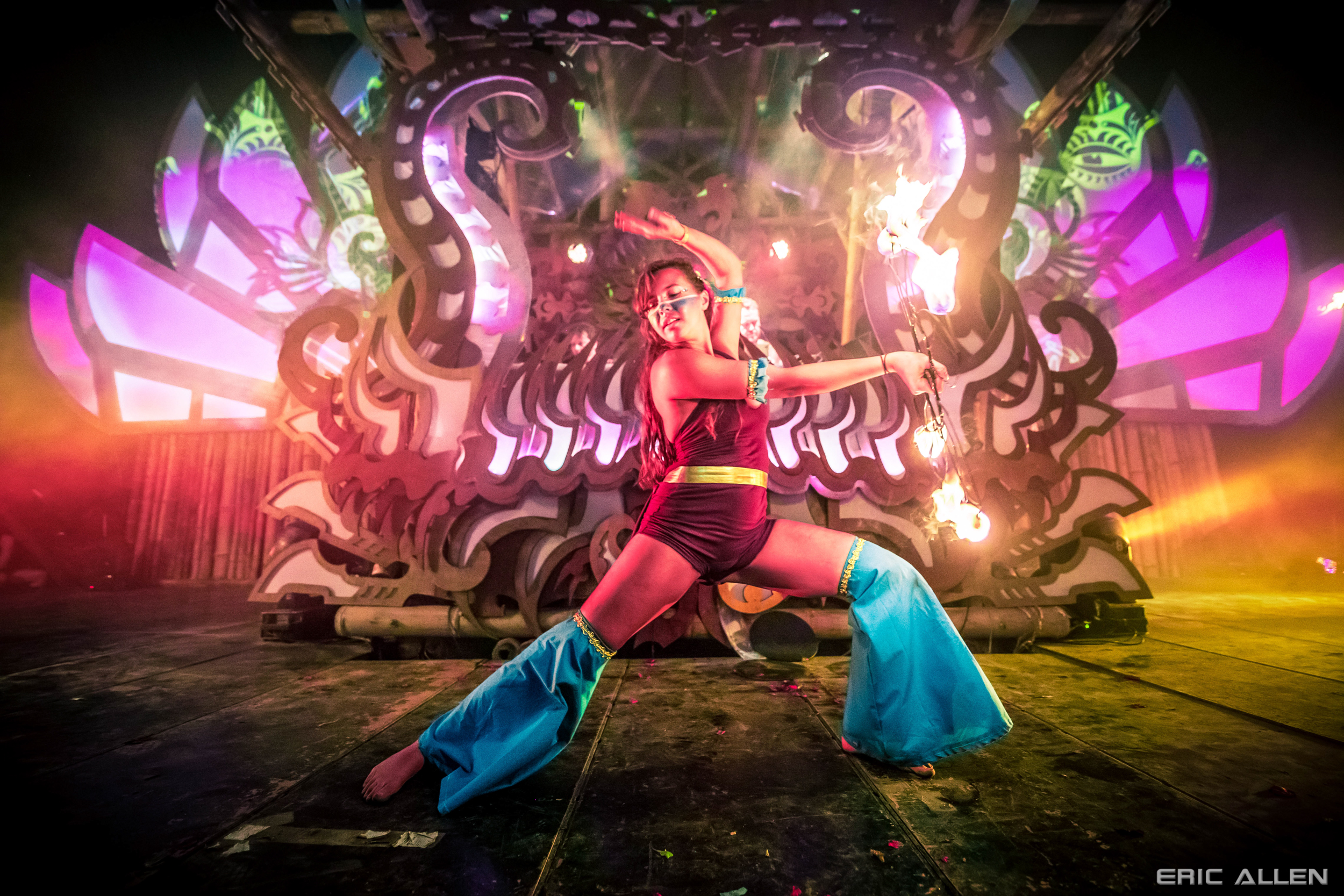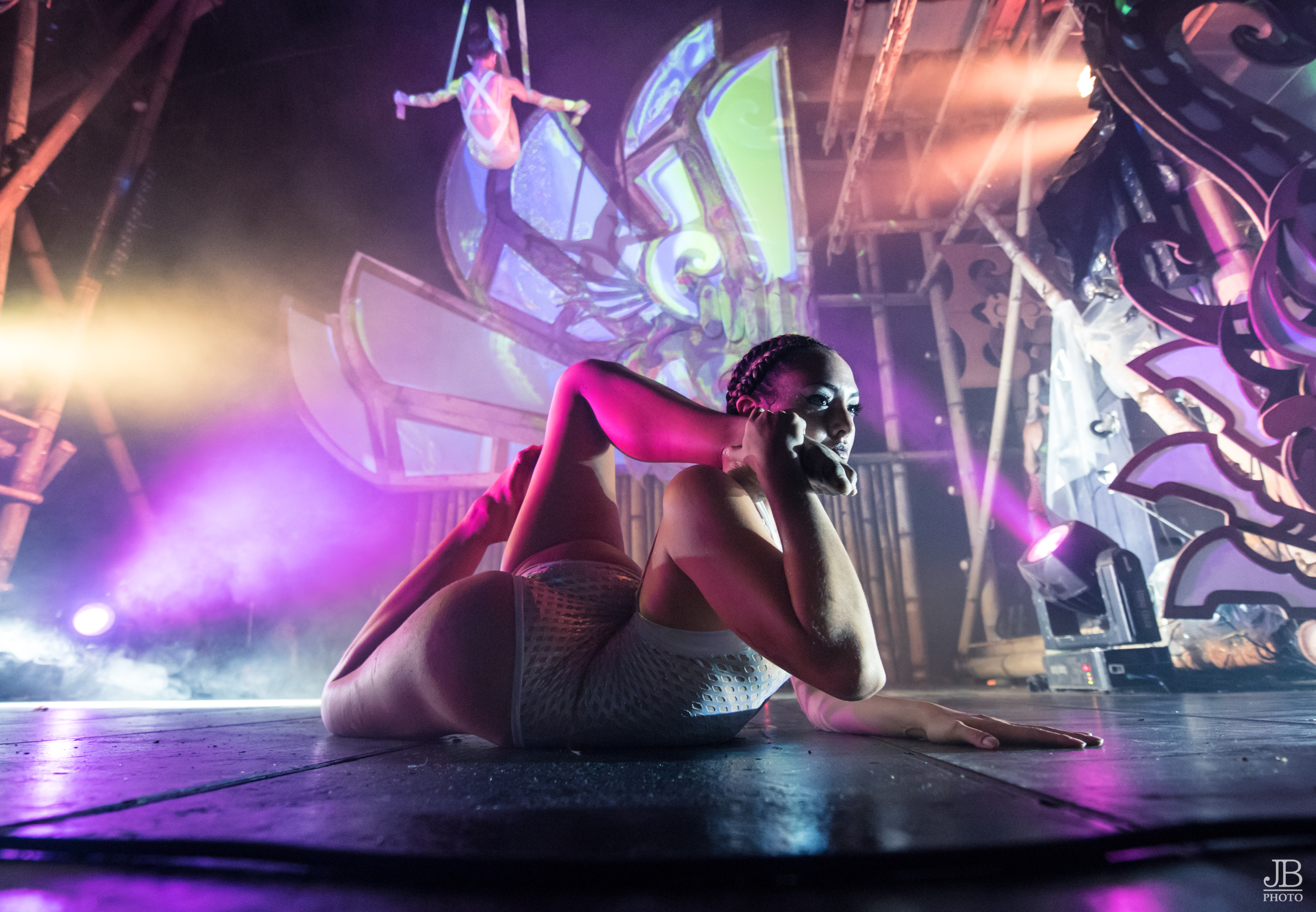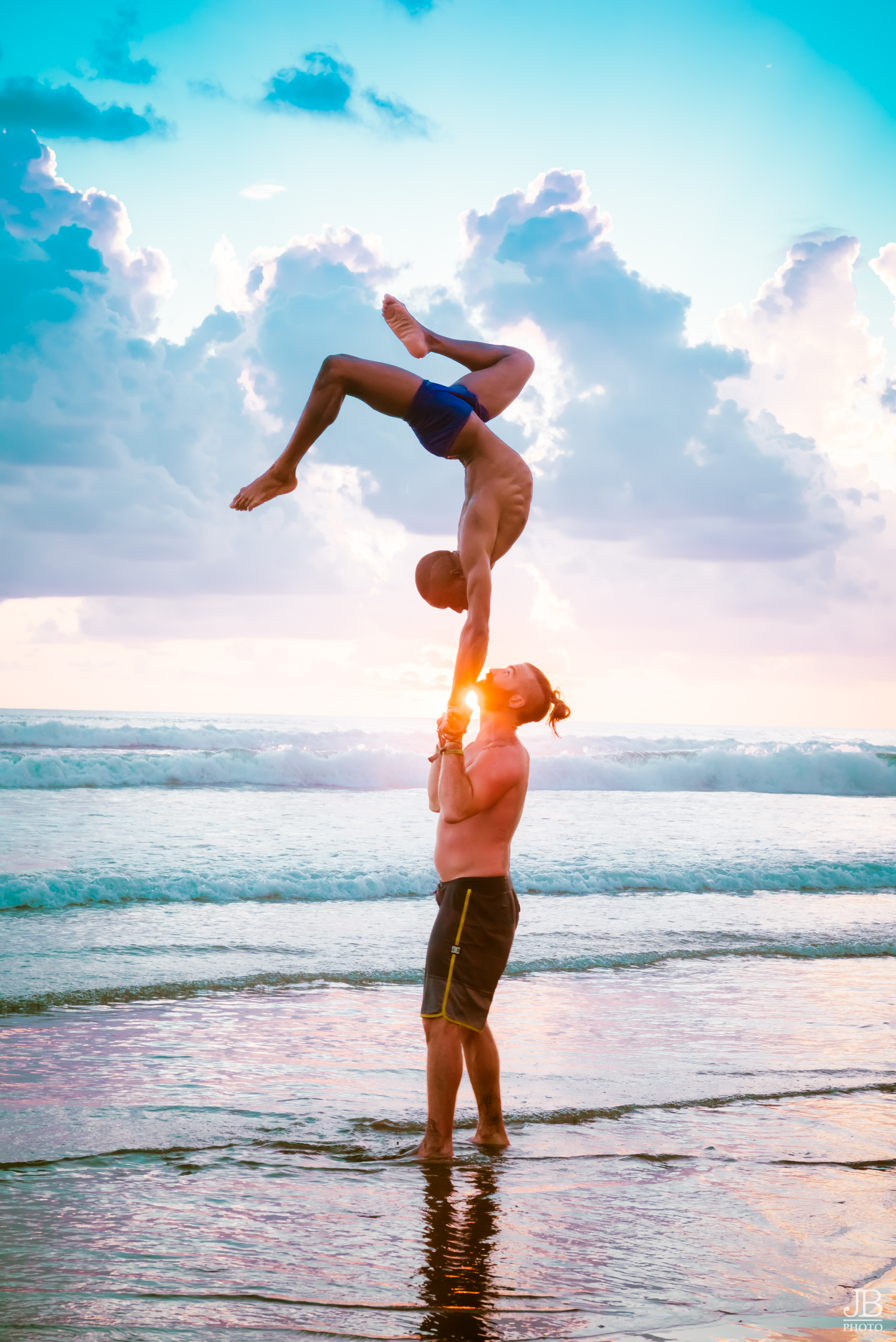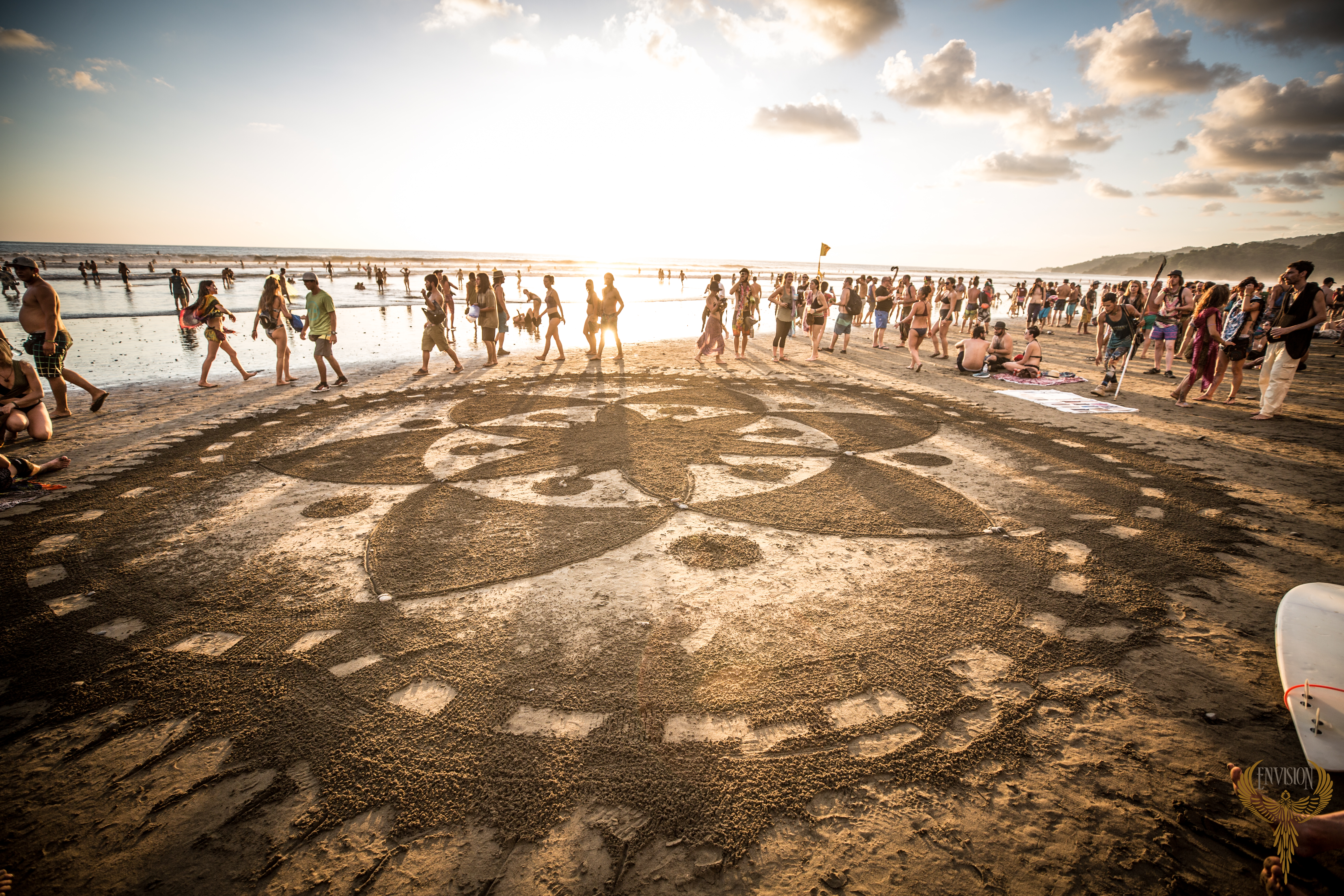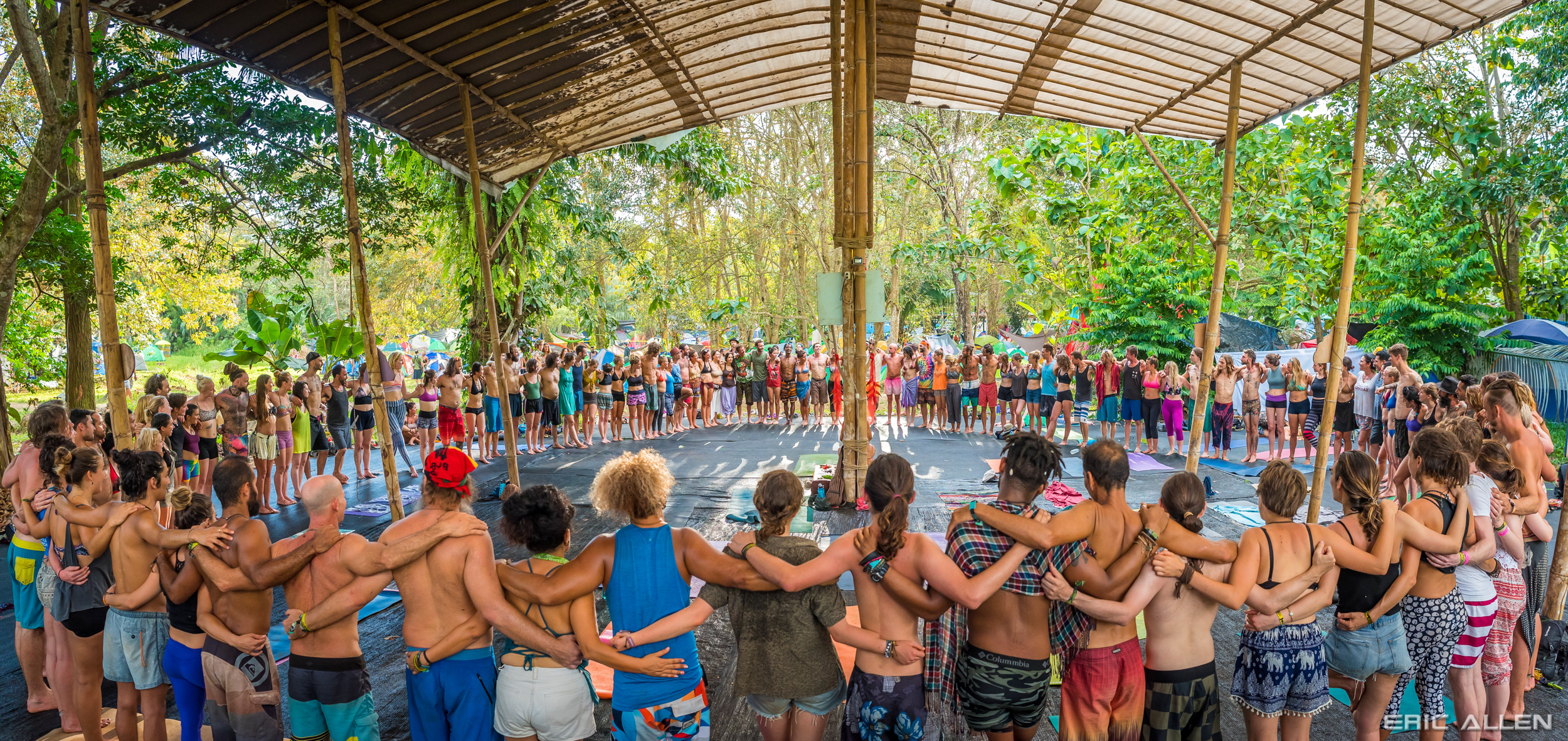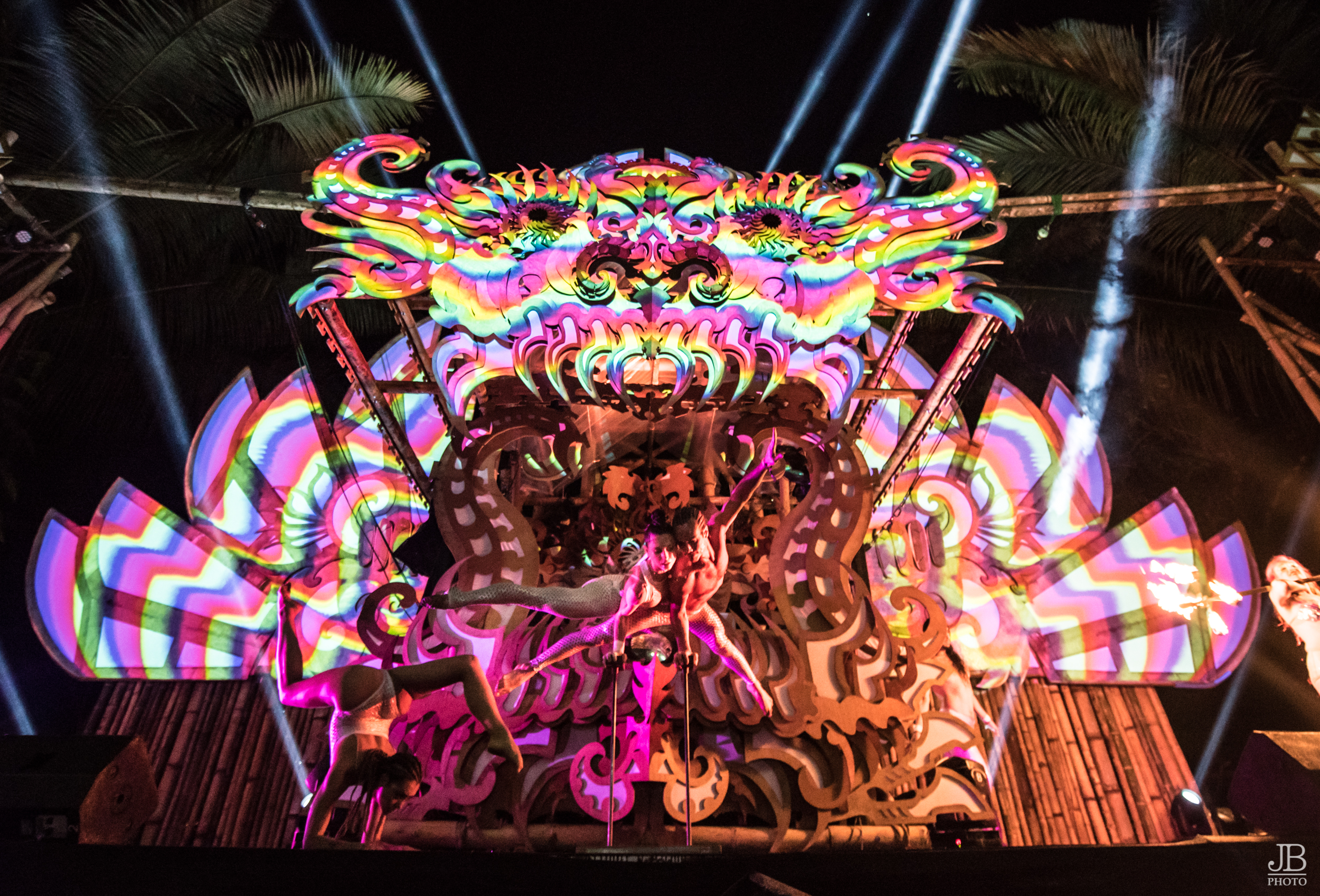
If you run in certain circles, you hear about Envision Festival — coming up at the end of this month in Uvita, Costa Rica — spoken about in sort of mythic tones. It’s something that vagabonds and adventurers whisper about at hostels, the place where two or more “beautiful souls” united before hitting the road together, and where higher level values are always on full display. The traveler whisper network dubs the festival our generation’s yearly Woodstock, to a much larger degree than even Burning Man.
It’s also a Utopian fever dream of sorts: A bunch of people in the jungles and beaches of Central America, communing with nature and one another. In what world would that not sound shockingly enticing?
Having not been to Envision, but feeling connected to its mission after visiting similar festivals, I jumped on the phone with the festival’s CEO Reuben Walker and its co-founder/ head of production Josh Wendel. What could have been a lazy conversation meant to plug a fest quickly turned into a deeper conversation about ecology (the fest won the FestX prize last year for “Oustanding Green Event“) and the big-picture ideals that Envision hopes to embody.
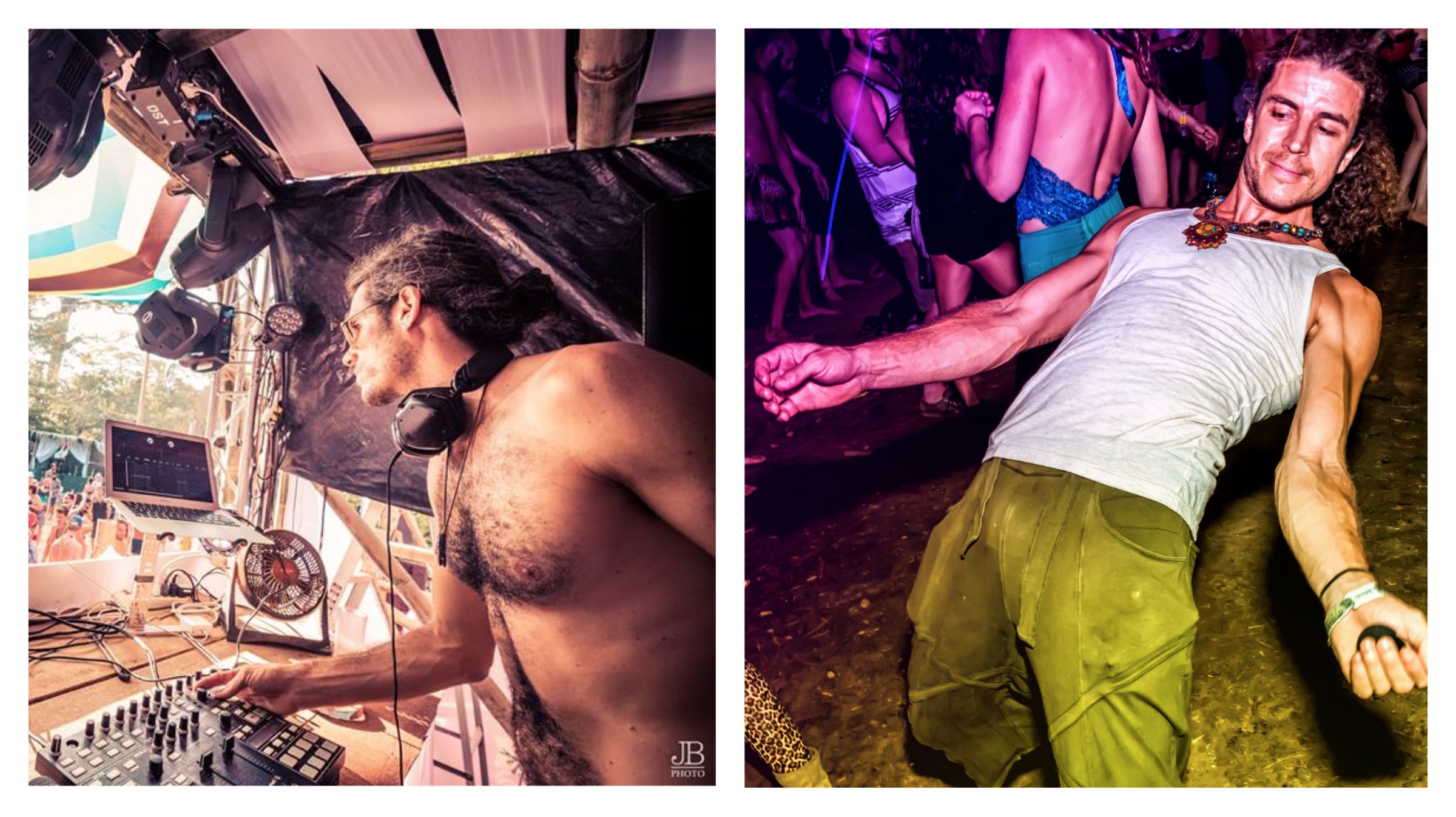
Let’s start with the fact that we all know and love Costa Rica. The three of us are in the same boat there. So when you’re thinking of throwing — I know everyone hates that word transformational festival — but when you’re thinking of throwing a festival that is going to operate on a number of different levels and be a little more holistic than just music, what made Costa Rica the fit for that?
Josh Wendel: Basically the festival started by… well it was just pretty synchronistic — I moved to Costa Rica to start a sustainable community, and live off the land, but also came from Colorado where I was really into music and natural food industry. So I came down here with all of that background and that intention, and I fell in love with Costa Rica and I just felt the things that I saw that were really missing was the good life — diverse music and art, and then, of course, healthy food and natural building.
There were about six or seven of us that all synchronistically came together and that’s what started it, but I think obviously it all came out of a passion and desire to be in Costa Rica and live sustainably.
There must be a ton of barriers to entry to doing something at the scale that you guys are doing it. Was it difficult to get off the ground? Was it something that took a lot of investment? Or was it something that was just a shoestring event the first year or two?
Josh Wendel: We all came from a different background that played an integral part into forming Envision, but frankly we didn’t know what we were doing or getting into, we didn’t know if it was gonna be a larger festival with big headliners or a small private party and we landed somewhere in the middle and it felt special, so we continued it. We really never imagined what it was gonna turn into, but it was all good from that first year.
It definitely had a similar feel to the current version of the fest.
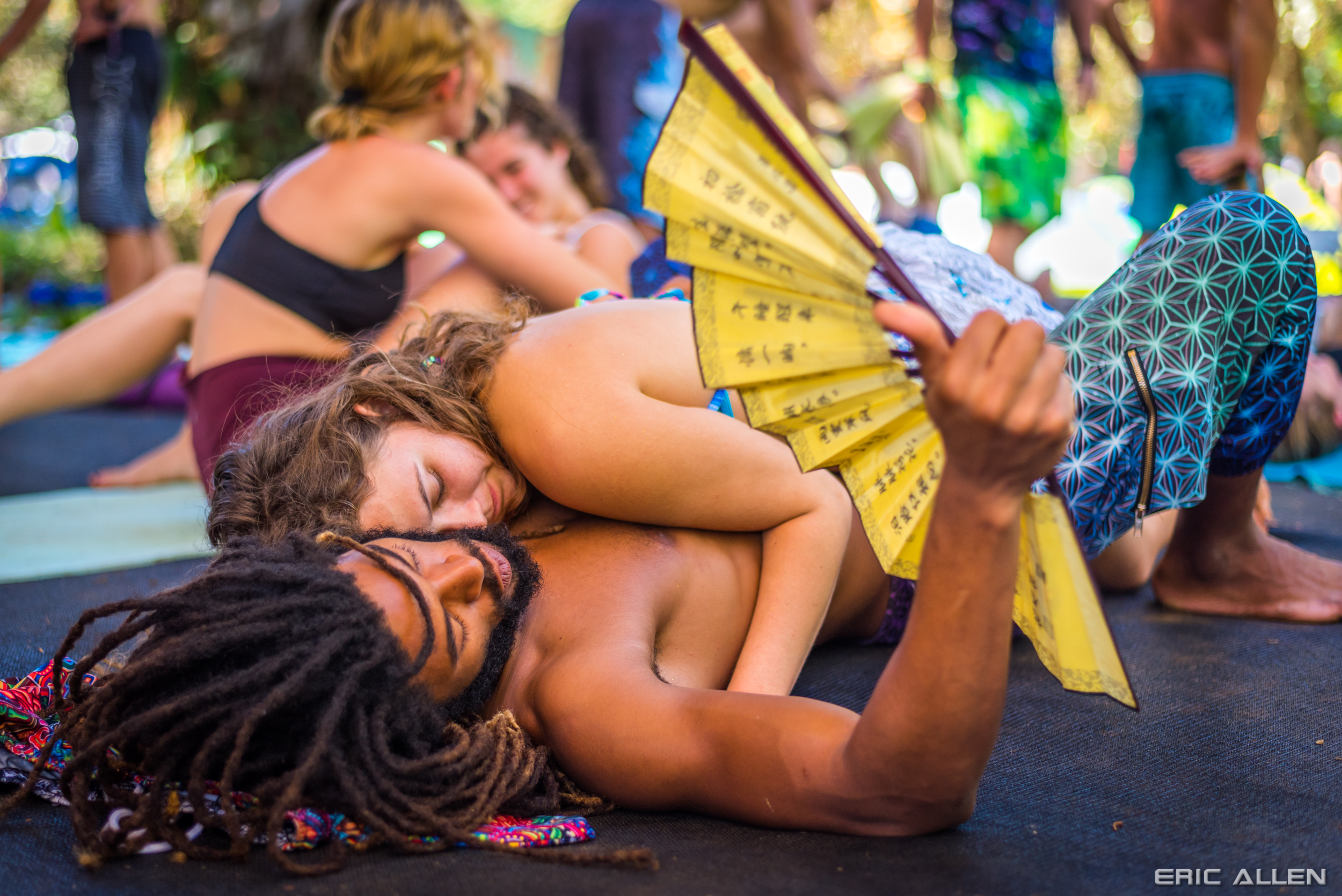
At this point, this feels like Costa Rica’s Burning Man, to some degree. Is that a comparison that makes you guys uncomfortable? Or… I was at Symbiosis for the Eclipse in Oregon a year and a half ago, and it seems like some of the vibe is similar. How do you self define?
Josh Wendel: The easy answer to that is “we define via Costa Rica.” Fundamentally, we have a different feel because of our location. It’s not easy to ship art structures around and rebuild them and you have a lot of resources in the states and people that build incredible art and warehouses, they can transport them and the infrastructure. So we’ve been forced to do things out of natural materials because one, we’re passionate about it and that’s how we … my house is built out of what looks like the same materials as the stage… but also because that’s what’s available and that’s what’s easy to work with.
We don’t have any pop-up tents at Envision and never have for the last nine years. I don’t know if it was initially a conscious choice, but we definitely just choose to build things out of natural materials and that’s what gives us a special feel.
It’s an interesting time in the sense that… I don’t know if you’ve read much of my work, but I’ve been championing this kind of return to counterculture and I think that when you have a political movement as heavy as the current moment that we’re in, you need some counterculture or progressive party scene to balance it out.
At the same time, I think we’re in this time where the media dissects everything and you have cool festivals getting picked apart or the Burning Man mentality gets picked apart a little bit in the media. So what’s it even like to throw a festival at this exact cultural moment?
Josh Wendel: I guess it starts with the intention and it might be the same reason that moving to Costa Rica for me in the first place was, I’ve always had a belief in a lot of the concepts and practices that we teach at Envision. The way in which that we choose to fight the fight is through something that we believe is a positive message.
I was always very passionate about natural foods and I learned very on in that game that I didn’t wanna be telling people what to do and what not to do and ending up in arguments. I’d rather create a positive experience for people to open their eyes to and even more so to allow them to walk into a space and start asking questions that they might have never asked before.
We try not to typically say we’re Republican, Democrat, this party, that party, we want to create something and do it in the way in which that we believe it should be done. We hope that people walk into it with an open mind and therefore start asking the questions, and instead of us saying that these are the answers to all of life’s problems or everything on the planet, we would rather just people walk in there and say, “Oh wow, I picked up something at that stage, or over there in that workshop that I can bring back and integrate into my life.”
How do you create the vibe? How do you attract like-minded people? How do you get yourself in this situation where you walk through the festival, one of the two of you walking through the festival going, this is who we wanted here, we did it. Versus getting some element that might be opportunistic in a way that you weren’t excited about.
Josh Wendel: We bring artists that we feel are a good fit and pay close attention to the content that we wanna curate within the festival, and the draw that they might have. In terms of the actual type of people, and we’ve just been I think fortunate or birds of a feather flock together to some degree, where we create a positive place where a lot of incredible people come and express themselves, whether it be performance, art, Yoga, music, and it only seems to inspire more creativity.
To me, it’s not so much about attracting a specific crowd, I get excited to see people that are totally outside of that crowd and three days into Envision they’ve got like healing clay on their face and running around barefoot and they’re all of a sudden in the crowd.
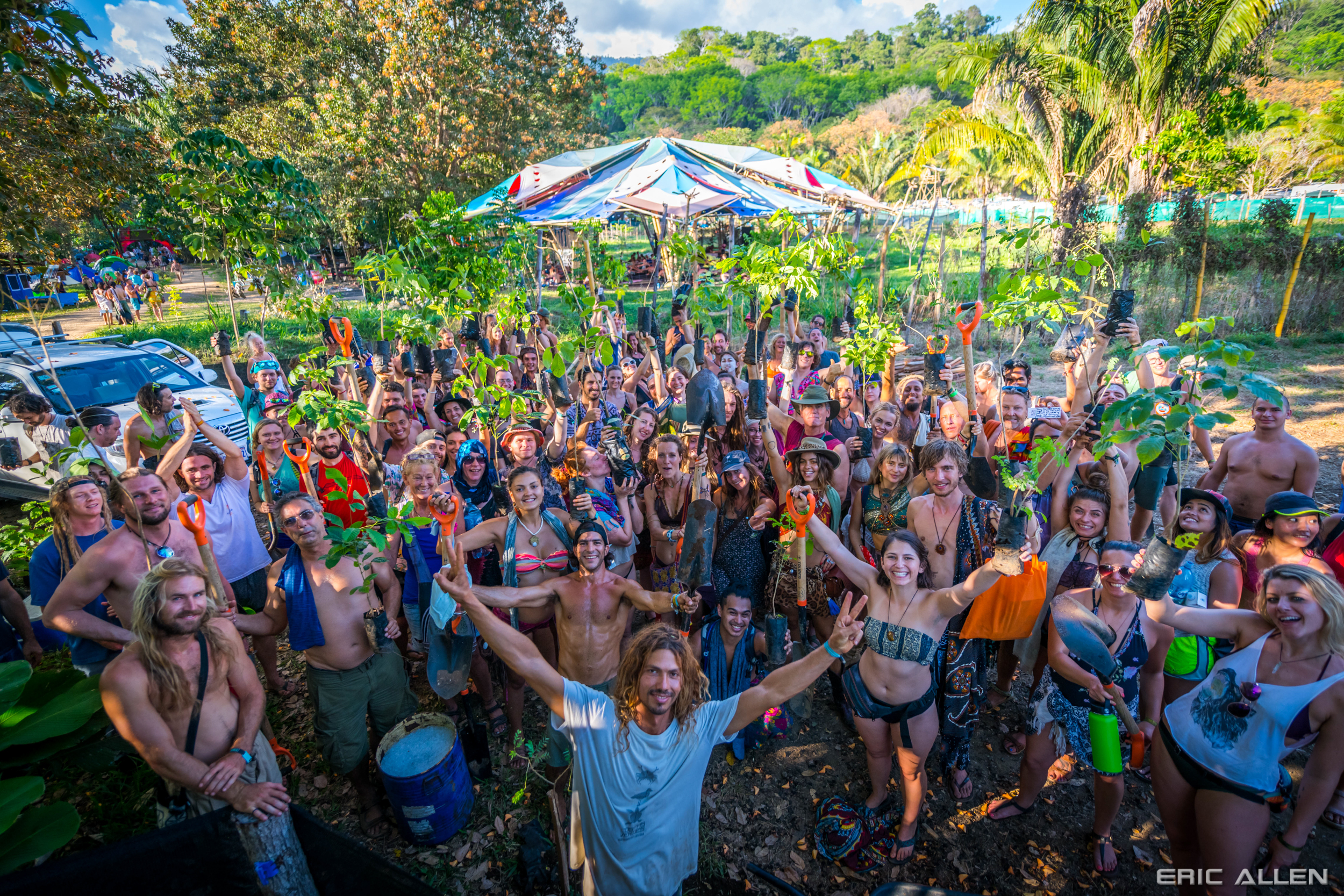
I like that. When you’re operating in a country that you weren’t born in, I’m under the impression that you guys were both born in the states. Is there a way to do it? Is there a constant consciousness of how do we do this while being respectful to the culture that’s here?
Josh Wendel: Absolutely. There are always gonna be people that don’t understand what we’re doing, so we can’t be out there to only make sure that everybody is happy, it’s just impossible. We obviously have a very serious ethos that we put first and foremost. We wanna create a positive impact on the community and, hopefully, people see it. If they don’t, we’ll still do what we feel is right. I think in general the community has seen the positive that’s come out of it, even the type of people that it brings to the area and the type of tourism that might happen year round.
We’ve been here for, going on nine years. We bring a lot of people who care about the evolution of this place, and reforestation and building out of sustainable materials and opening up retreat centers. It’s definitely become a hub to that, I would like to think that we’ve been a catalyst in helping that process.
Have you seen your programming and your mentality create in that area, have a broader effect? You talk about the fact that you’ve seen people move there, that is becoming more of a traveler hub. Do you see your mission broadening at least in regards to that area?
Josh Wendel: That’s actually one of the most exciting aspects of living in this area, because it’s a relatively young area, development-wise. It’s really been populated with permanent structures for only like 70 years. So it’s exciting to be in a place where you can actually see and feel the impact that you’re having and seeing it steer in the right direction because Costa Rica has been getting developed pretty heavily for the last 20, 30 years. It’s nice to be in an area where you can actually see the impact, that was always a challenge in the States, fighting for a cause that I believed in, but in the end, it’s hard to know if you’re really making much of an impact.
Where you guys are at Uvita, you’re able to really see day to day, like “Oh, we’re helping shift the culture or we’re helping affect the culture, shaped the culture in some ways?”
Josh Wendel: I really think so, yeah.
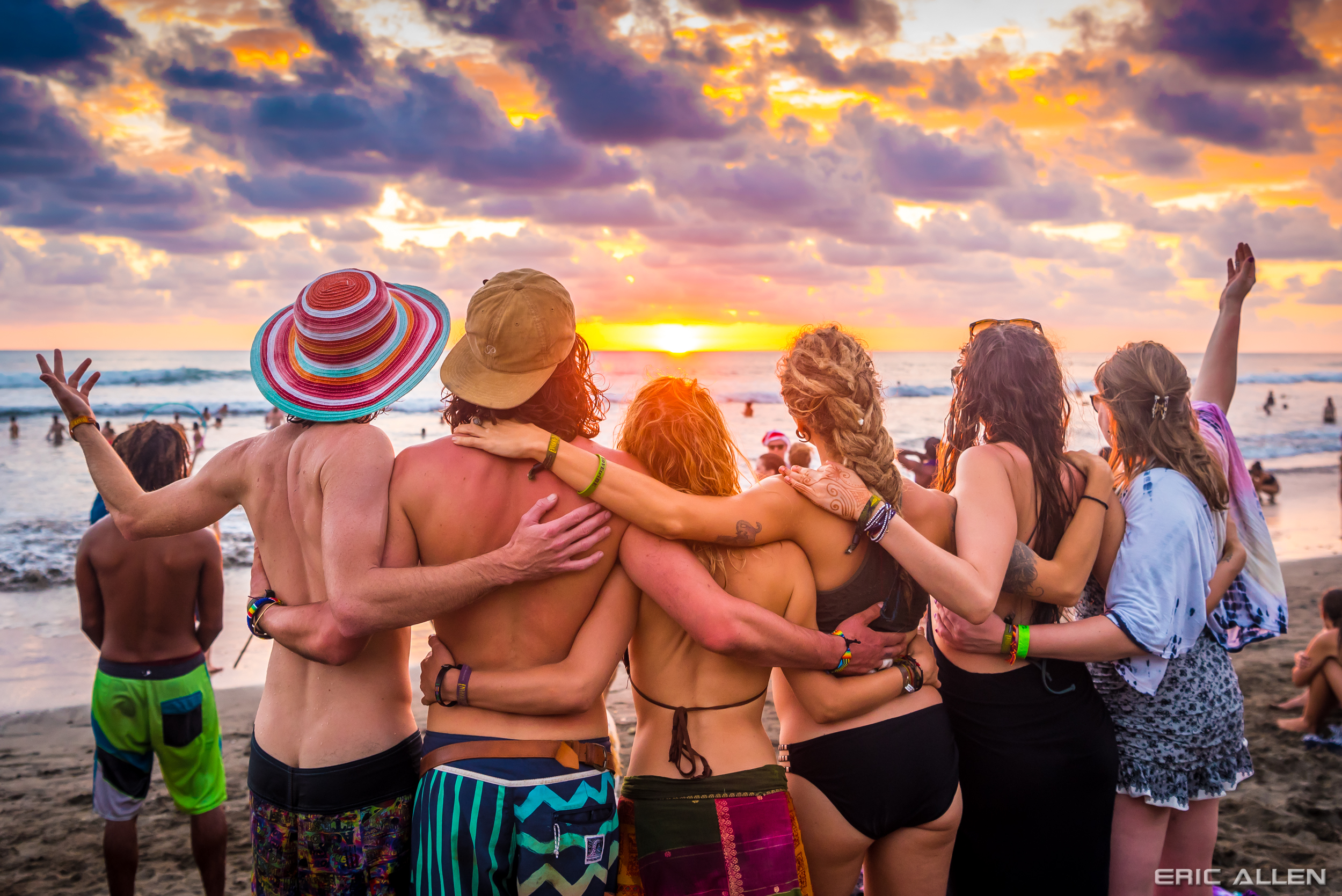
What do you hope for out of — I hate to go constantly so deep ’cause I think there’s also a lot to be said for just throwing a good party — but what do you hope that members of your community are conspiring to build? What would you like to see them build in the world? Where would you like to see that culture head? We’ve seen these huge events that can draw a ton of people and there seems to be a great lift in consciousness that comes out of them. What do you see as the end game?
Josh Wendel: Right. Like I said in one of the earlier questions, whether it just has a small impact in somebody’s life that they could bring back to their workplace and maybe think about other aspects of making their companies successful in terms of the environmental and the social and the animal rights issues, or they totally uproot and wanna live on a sustainable farm and grow their own food. It’s anywhere in between, you don’t know, one person might come in that might have the means and the ability and the drive to make a difference. You’ve helped make that small ripple turn into a big wave.
I can say personally, how I choose to live, I live off the land as much as possible and my home is on solar and it’s … To me, that’s one of the answers to the issues that we see on the planet.
Talk a little bit about the sustainability, obviously is important to both of you and certainly important to the festival. It’s also a huge challenge considering how big the festival is.
Reuben Walker: I can speak to a lot of things I think that really position Envision in a powerful way to really access the more sustainable aspect of a large event like this. By its nature, a large event is somewhat counter-sustainable, simply because you’re bringing in a lot of people, and you’re bringing them from all over the world, and that’s a challenge.
So really what we want to do is to take as many opportunities as we can to offset that, because ultimately we see the value that we’re generating through the gathering to be net positive essentially. As Josh mentioned, we do take a lot of effort, we don’t have any single-use items on site, they’re not selling any plastic water bottles, there are no cups, there are no dishes, there are no spoons, none of that stuff that would get used and tossed into a waste bin. So we do run a reusable dish program that we’ve developed over several years to ensure that it is not only very functional but very safe, because these are challenges that large communities of people whether they’re temporary like our event, or if they are more permanent.
Fortunately, because we’re in Costa Rica, we have access to such incredible natural resources. In the way in which Costa Rica often does, it almost slaps you upside the head with the reality of what makes sense in that the natural building materials are all around us. Bamboo is something that we’re having trucked in, in large loads and it’s all harvested in a very local, sustainable manner from the people who cultivated it and nurtured that bamboo from the beginning. So it’s not only is the material itself what could be considered a sustainable material, the ecosystem of the community and the business and all of those things are functioning in a regenerative way. That is also a huge aspect of it, that applies to the building materials as bamboo, the wood, a lot of our labor as well.
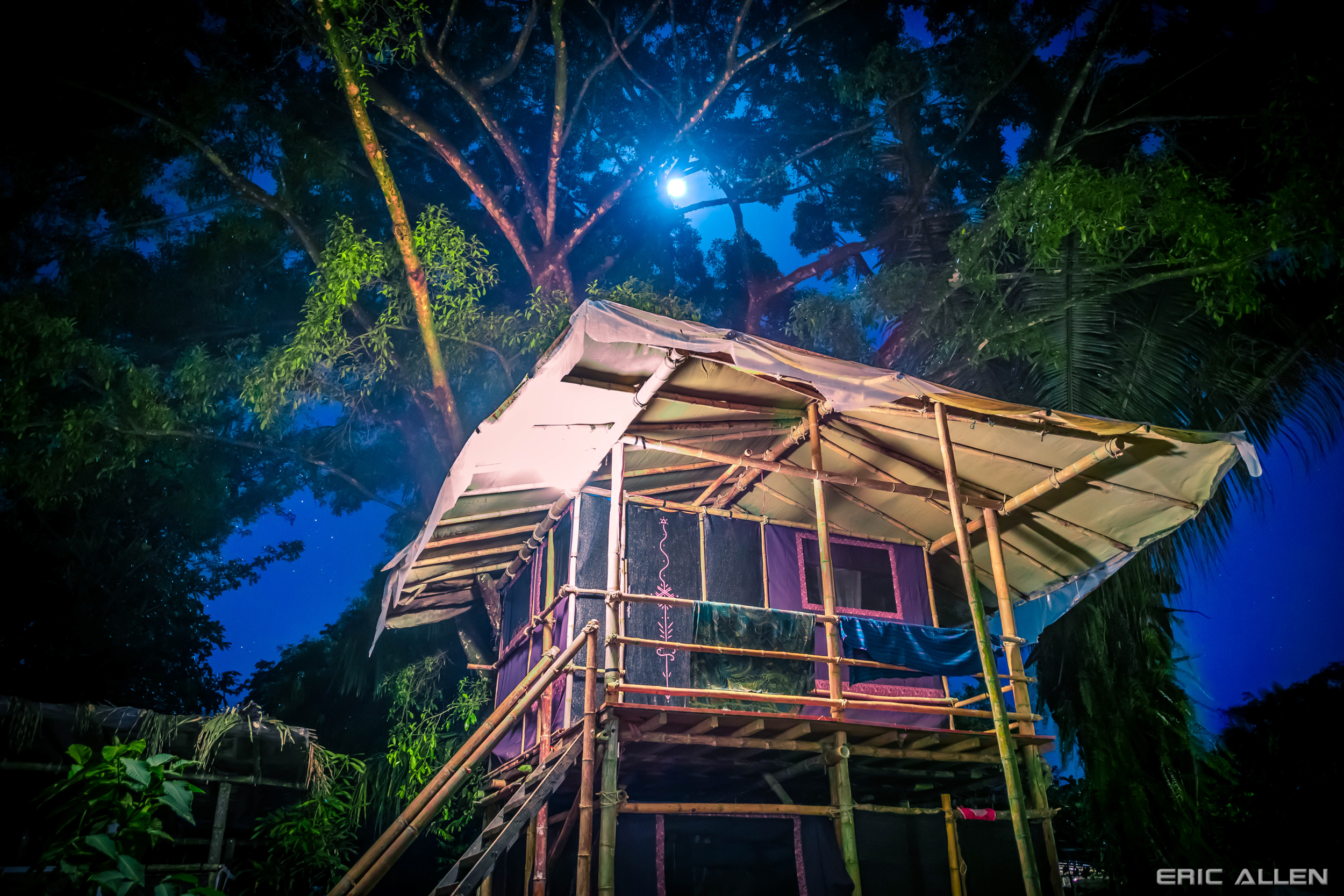
And I’d imagine water is not as much of a stressor as it would be at Burning Man.
Reuben Walker: We certainly work, continuing with the idea of just the available resources, water is something that’s in abundance here in Costa Rica. So we’ve actually worked with the local town not only to ensure that we’re providing water for our patrons, that’s coming from obviously just literally across the street, but we’ve also worked to reinforce the entire water system for the local area, because we’ve discovered that we end up being the biggest town in the area once everyone shows up. So we have to look out for are our smaller neighbors in that regard.
Another thing that I think that really helps here is, because people are coming in it’s like, yes, there’s obviously a travel footprint, but once people reach the country, the transformation into a lower footprint of travel is pretty cool. I worked a lot of events in the states and you have parking lots as big as the festival and for better and worse we don’t have that exact same dynamic. So we put together an incredible shuttle program where we’re bringing thousands of people in shared shuttles.
We do our very best to support people and in being conscious around that experience and that travel. The food that we bring in for the festival, we feed 2000 staff ourselves, and then on top of that, there’s obviously the event. So for our own vendors and catering internally for the staff, we have a team of people working throughout the year to not only source food and produce and everything else that we might need from the local community but actually to coordinate growing it with those farmers. We put in an order from seed to seed the product and they actually produce this stuff specifically for us, which is actually a really nice feeling to know that people are cultivating something with the intention of where it’s going. They know the ultimate result of what they’re working towards and they are part of the festival too.
Then all of the food vendors and stuff that we bring in are also held to a similar standard. We ask them all to source their food products as sustainably as possible, from as local as possible. While we haven’t quite transitioned into a fully plant-based food vendor scenario, we are certainly working in that direction and we put a lot of pressure on trying to minimize the amount of any animal products that we might have because clearly there is a huge detriment to the planet that comes from those things.
That was fantastic. So with those initiatives, what would you say is the overall mentality of the event itself or at least its founders? If you had to define and help create what you believe is the mentality of your event — almost as if Envision were a human — how would you describe that?
Josh Wendel: What a question. Good one. The first thing that comes to my mind is attention to detail, I think just work with as a perfectionist that we’ll drive ourselves into the grounds to create an impeccable product. We’re trying our very best to teach people to not drive themselves into the ground, thanks to people like Reuben, but that’s just the type of people that it seems to conjure up. It’s one of those things that works is I think people believe in what we’re doing and why we’re doing it, and therefore we’ll put as much as it takes into it to achieve the result that we obtain. I’d say I personally take a lot of pride in the production and the experience that you have on site. That everywhere you look is aesthetically pleasing and it’s built out of natural materials, that experience to me is priceless.
Not to be hyper-critical of a lot of other festivals, but I haven’t seen that same detail in other events. The other thing that we really focus on is that we want the message of Envision to come through in just about any aspect of Envision, where you’re at. The same ethos based on sustainability and creativity and all of those things. Everywhere you go, whether you’re at a stage or a workshop or a yoga class, it all resonates that same message. It takes a lot of attention to detail for that to come through.
Reuben Walker: I love this question because I think that you see this very powerfully at this event. So the other questions really pertain to how Costa Rica sets the stage for what we do. I think one of the things that Costa Rica really drives home for you is just how powerful nature is and just how present it is. You can’t be in Costa Rica without being totally aware that you are in the true heart of nature and you were in the lungs of the world. Whether it’s just the birds flying by, or the river in front of you, or the trees, or the bugs crawling up your feet, it’s this constant presence.
In that way, I think that part of the way I see Envision if it was to be an entity — if it was to be an individual — is similar to the sense of a mother planet or a parent figure. It’s this extremely powerful experience, an extremely powerful person with just a seemingly endless amount of compassion and patience. As you mentioned that, I think to so many moments that I’ve had at the event itself and it ripples through the people there. It can be a very challenging environment, you mentioned Burning Man, one of the things actually that is oddly comparable is that it can be a very challenging space, it can be very warm during the day, the sun can be very hot, people might not be used to it, but in this way, in a similar concept of the trial by fire, people really begin to bind together, they bond over being in potentially an unfamiliar place, that in itself can in a really positive way, disconnect people from their own reality.
Guests are united in even their struggles.
Reuben Walker: I believe strongly in the sense of suspension of disbelief that you get from a movie, coming to this event is that sense. It’s like walking into an entirely new world and it can disrupt your normal patterns so that you are open to new things. You might not realize that’s what’s happened, but you also spoke a little bit about the concepts of a transformational festival, an anecdote that I’ve applied many times to this is everyone comes looking for the transformational experience where it’s like, “Oh my heart was opened and the singing bowls were there and it was all beautiful.” The truth of the matter is that a transformational festival is something that pushes you to become something different or more than what you were, and that can be a very trying situation. So you get this combination of these things.
If I was thinking of Envision as an entity, it’s a powerful, compassionate, patient, guide and you see people pick up on that energy and share that with each other and people will support each other and care for each other and guide each other through this incredible journey that goes from the day into the night and into the day and into the night, and really I do think provides people with an opportunity to grow into something different.
